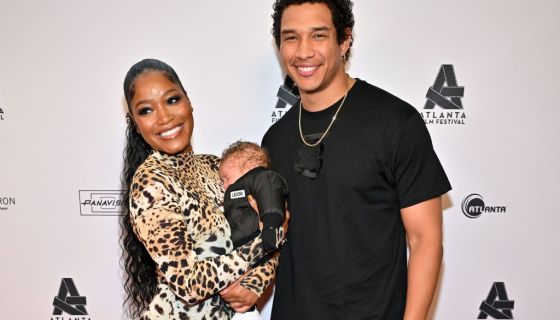
Source: Pacific Press / Getty
Notoriously private actress Kerry Washington is being more candid than ever about her personal life and its challenges — including her harrowing battle with an eating disorder.
The Little Fires Everywhere star sat down for an in-depth interview, teased on Sept. 21, with Good Morning America‘s Robin Roberts. Gearing up for the release of her forthcoming memoir, Thicker Than Water, Washington shed light on her eating disorder battle and how it’s shaped her.
The Golden Globes nominee shared that she’d contemplated suicide because of the soul-crushing pain her eating disorder caused her. She said her behavior at the time “was tiny little acts of trying to destroy myself.”
The actress noted that her eating disorder was the first thing that brought her to prayer and in search of “some power” greater than herself.
In an excerpt from her book, she said that when she arrived at college, her relationship with food and her body “had become a toxic cycle of self-abuse.” The George Washington University alumna vulnerably added that she’d engaged in “tools of starvation, binge eating, body obsession and compulsive exercise.”
Washington said she was “good at performing ‘perfect'” and being a master of control while speaking with Roberts. The actress recalled that she was “so high-functioning,” but the weight of her food issues burdened her heavily.
“The body dysmorphia, the body hatred — it was beyond my control and really led me to feeling like, ‘I need help from somebody, or something, bigger than me. Because I’m in trouble, and I don’t know how to live with this,'” she said in the GMA interview.
“I could feel how the abuse was a way to really hurt myself as if I didn’t want to be here,” Washington explained. “It scared me that I could not want to be here because I was in so much pain.”
Her relationship with food has changed, said the mother of three, who shares two young children with her husband, Nnamdi Asomugha, and co-parents the latter’s teen stepdaughter.
Washington said she now has the awareness and ability to “check” herself. She added that her growth has left her connection to food and her body a lot “healthier,” “easier,” and “saner.”
“I wouldn’t say that I never act out with food. It’s just very different now,” she explained. “It’s not to the extreme. There’s no suicidal ideation. That is not where I am anymore.”
RELATED CONTENT: “Why Black Women Struggling With Eating Disorders Are Ignored”
A February 2023 piece published by the 19th highlighted that eating disorder awareness and treatment has historically revolved around “SWAG,” the skinny, white, affluent girl.
The Center for Discovery, which focuses on eating disorder treatment, notes that Binge Eating Disorder [BED] is the most prevalent type of eating disorder for Black women.
That said, the organization reported most clinical research on BED was conducted with white women participants, despite Black women battling the illness at “similar or higher” rates.
Specific factors that Black women encounter when suffering from BED include “perceived discrimination, stress, trauma, and symptoms of depression.”
Women are up to three times more likely to suffer from BED, anorexia, or bulimia within their lifetime than men. Less than 50% of those with bulimia nervosa or BED seek treatment, and over 30 million Americans will have an eating disorder in their lifetime.
If you or someone you know is struggling with an eating disorder, contact therapists via the National Alliance for Eating Disorders’ free help hotline at +1 (866)-662-1235.
Washington’s forthcoming memoir Thicker Than Water drops Sept. 26.
RELATED CONTENT: “Kerry Washington’s Memoir ‘Thicker Than Water’ Will Reveal Her ‘True Self’ To Readers”












